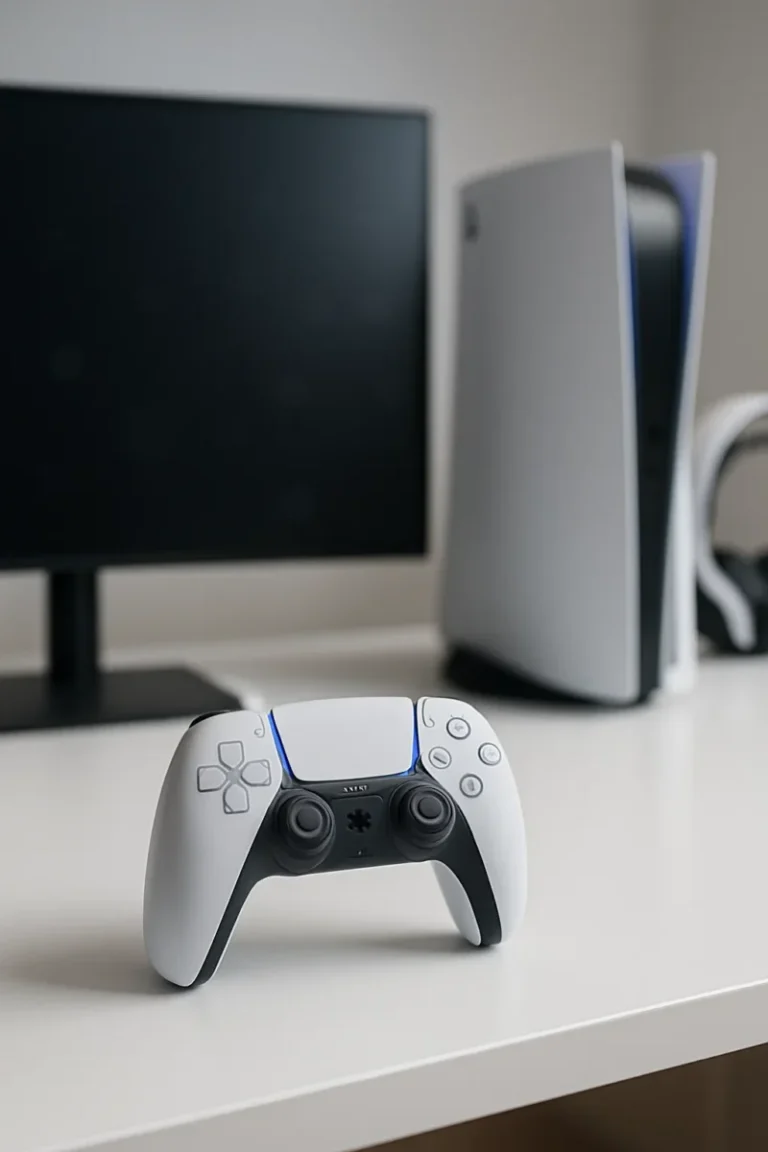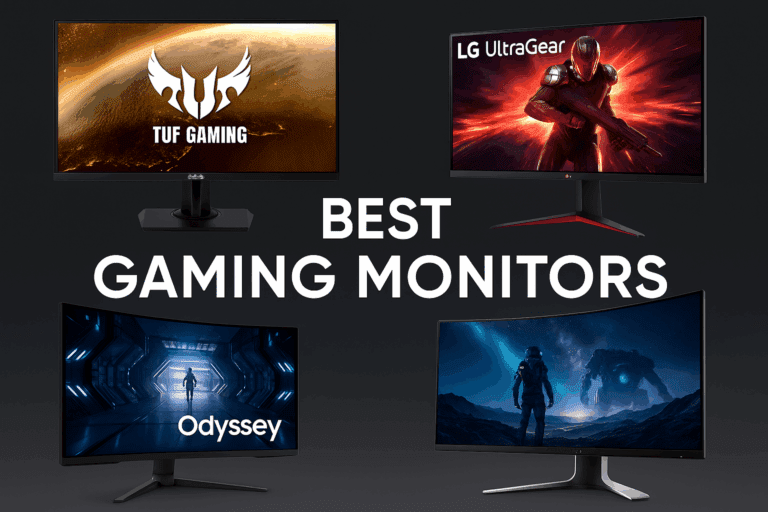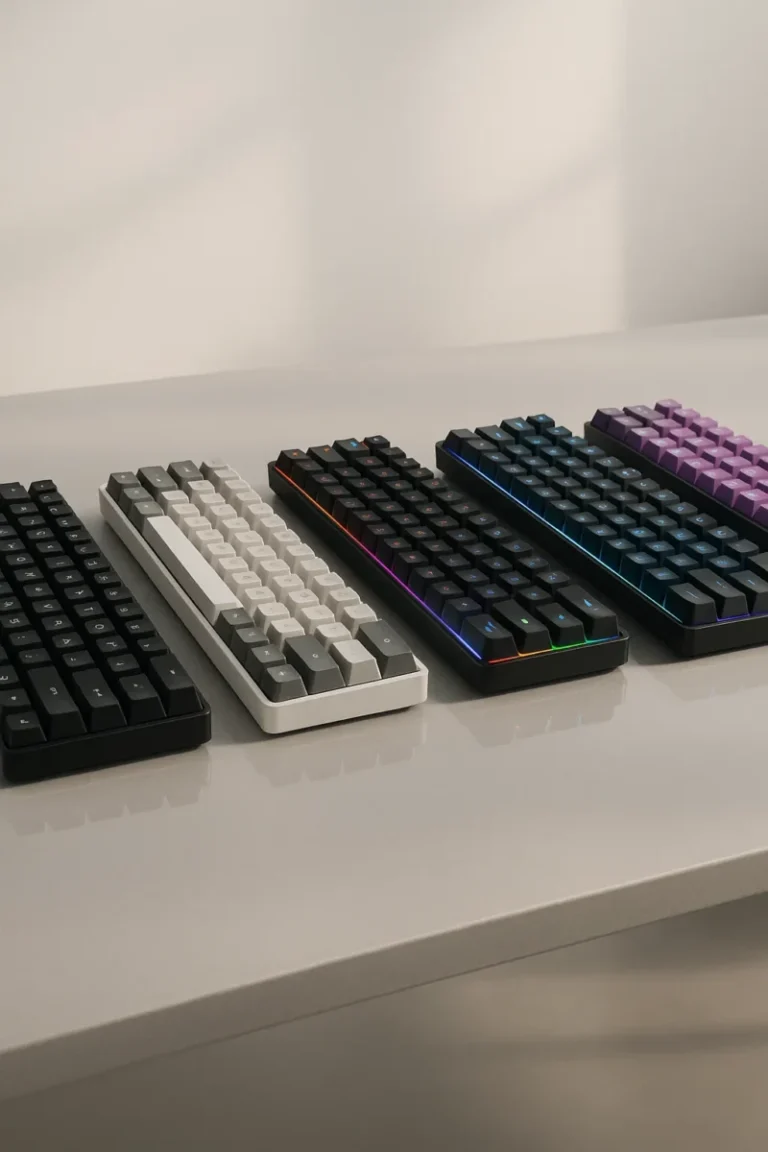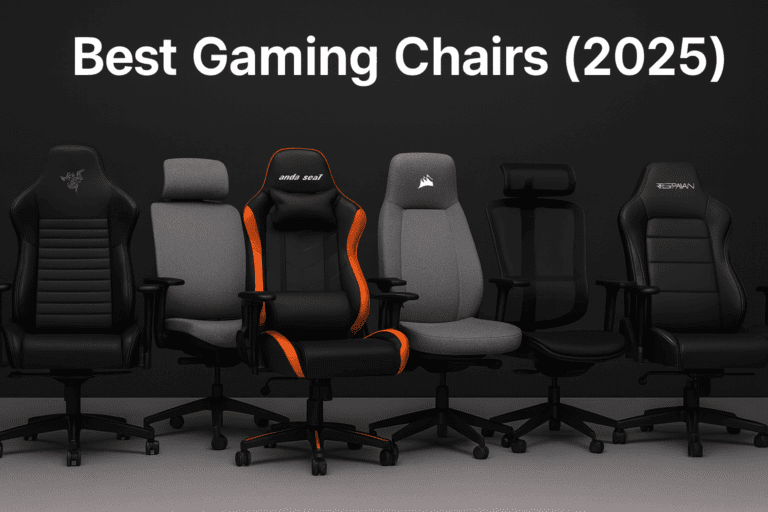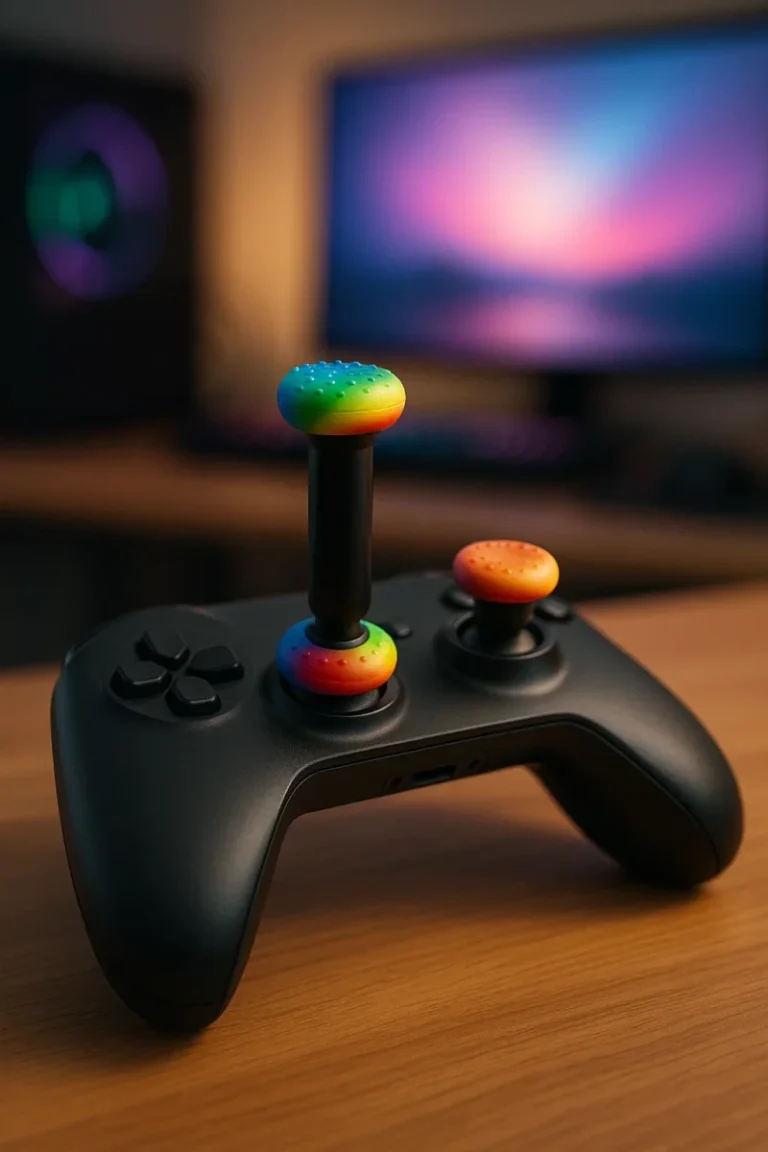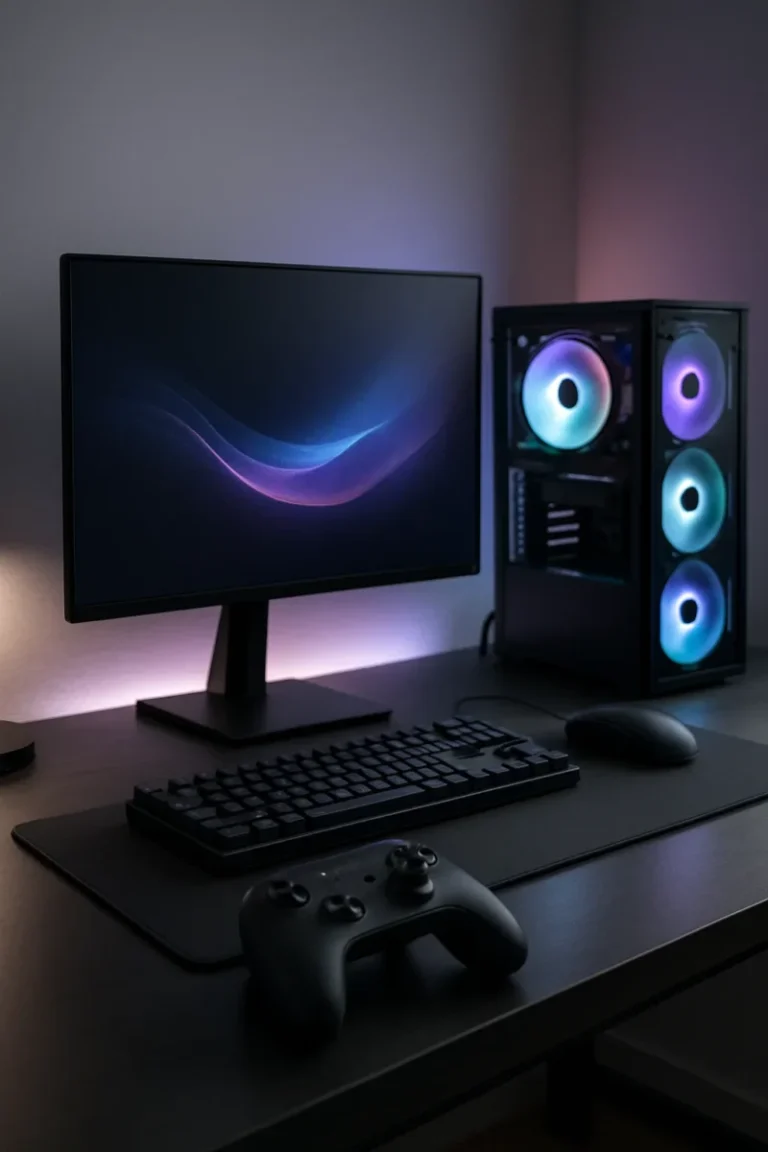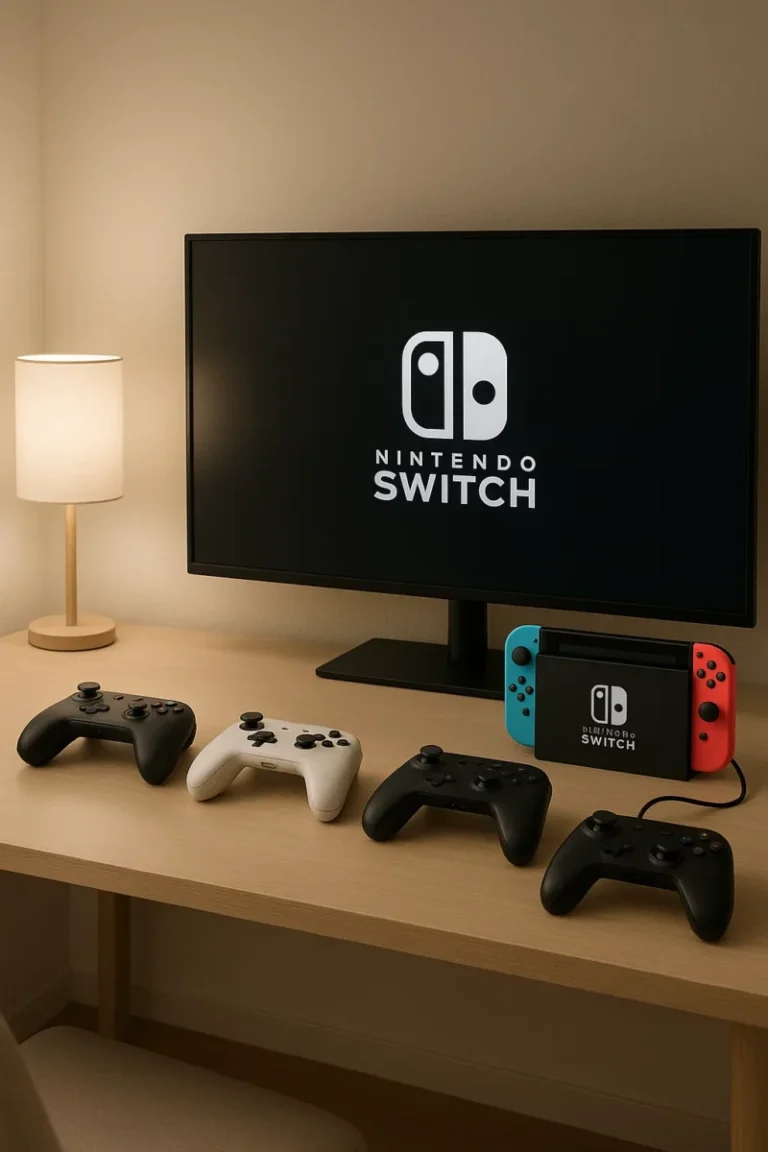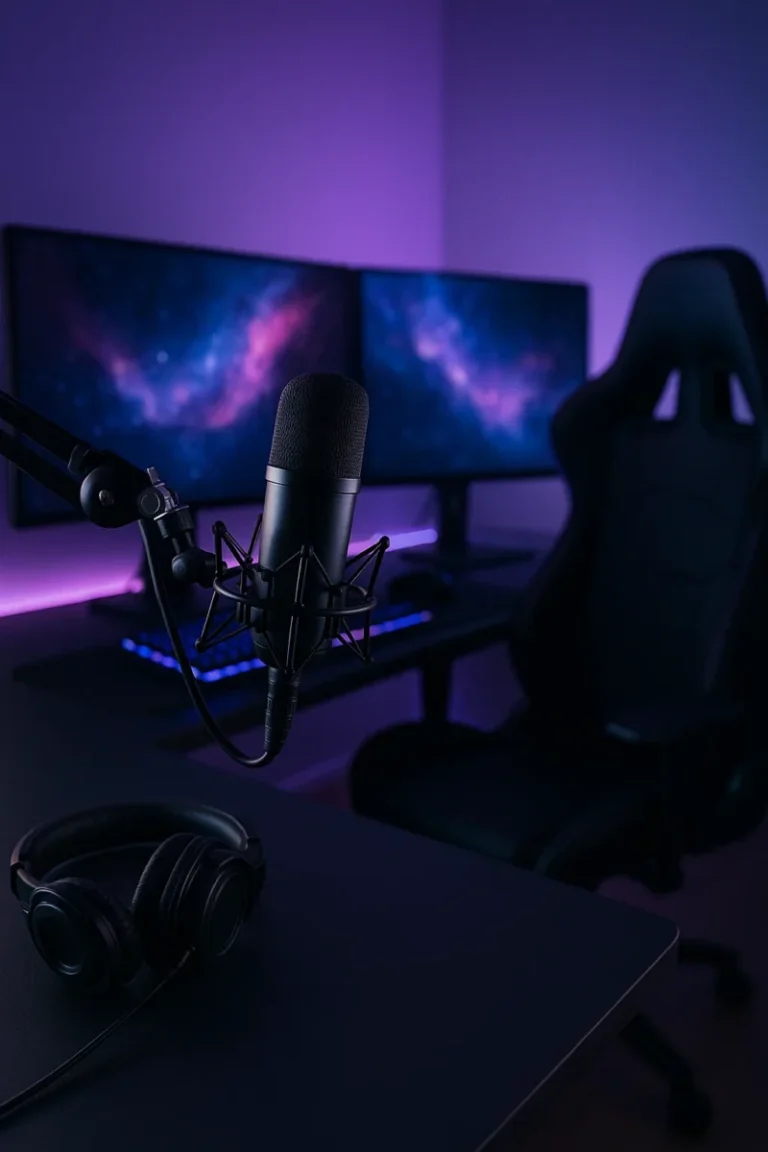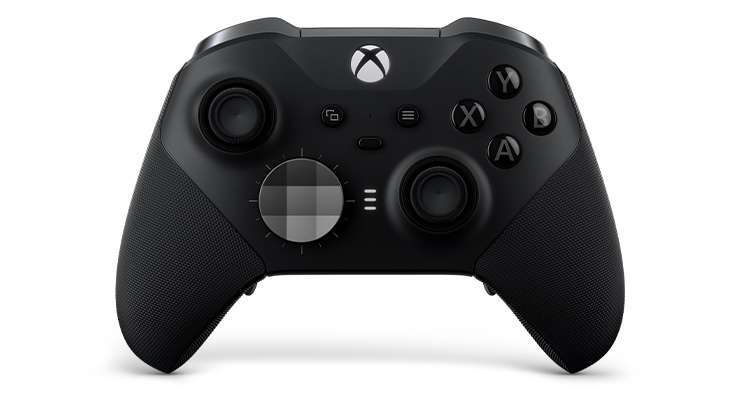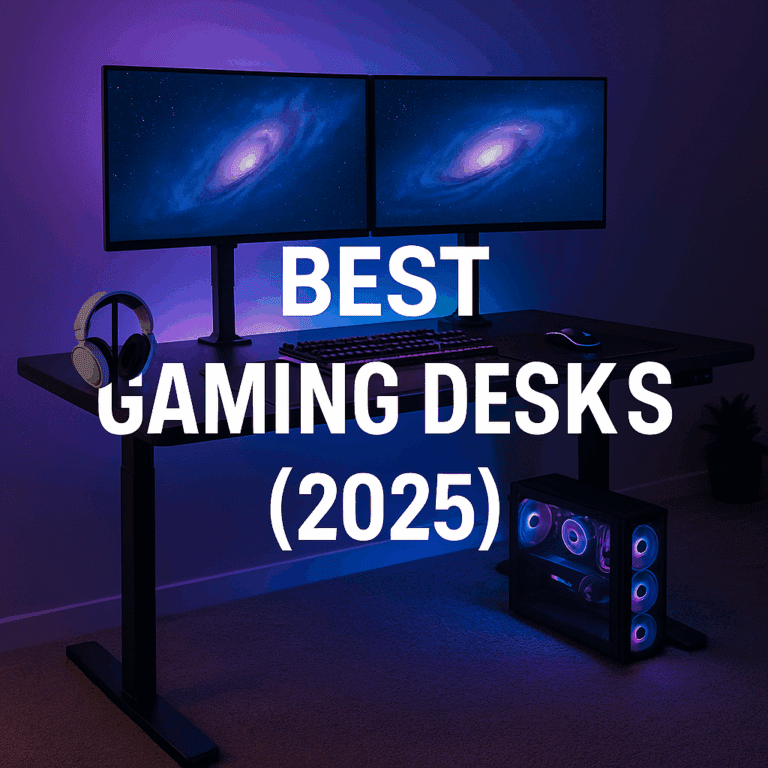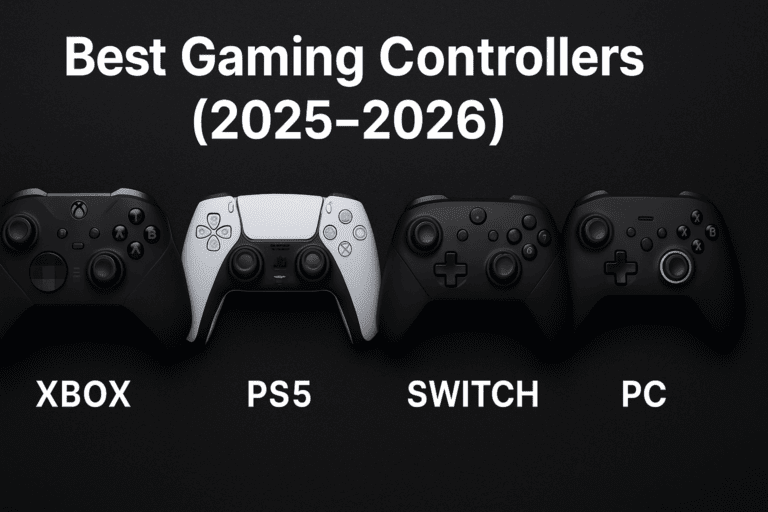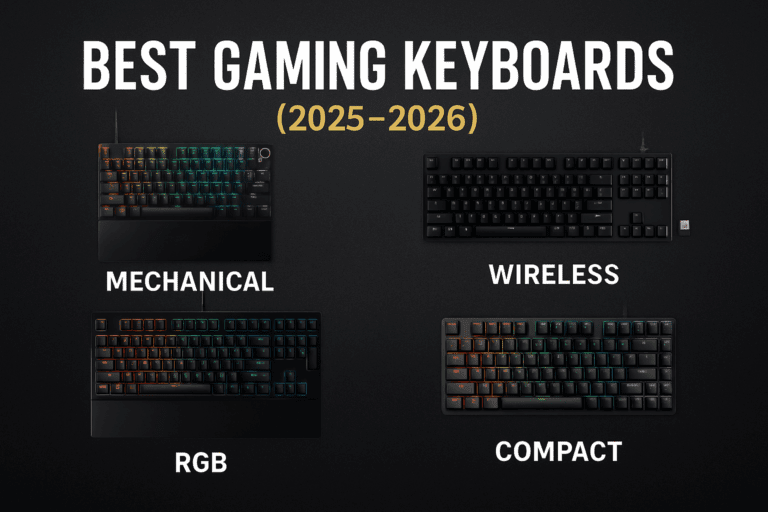← Back to Gaming Accessories Hub
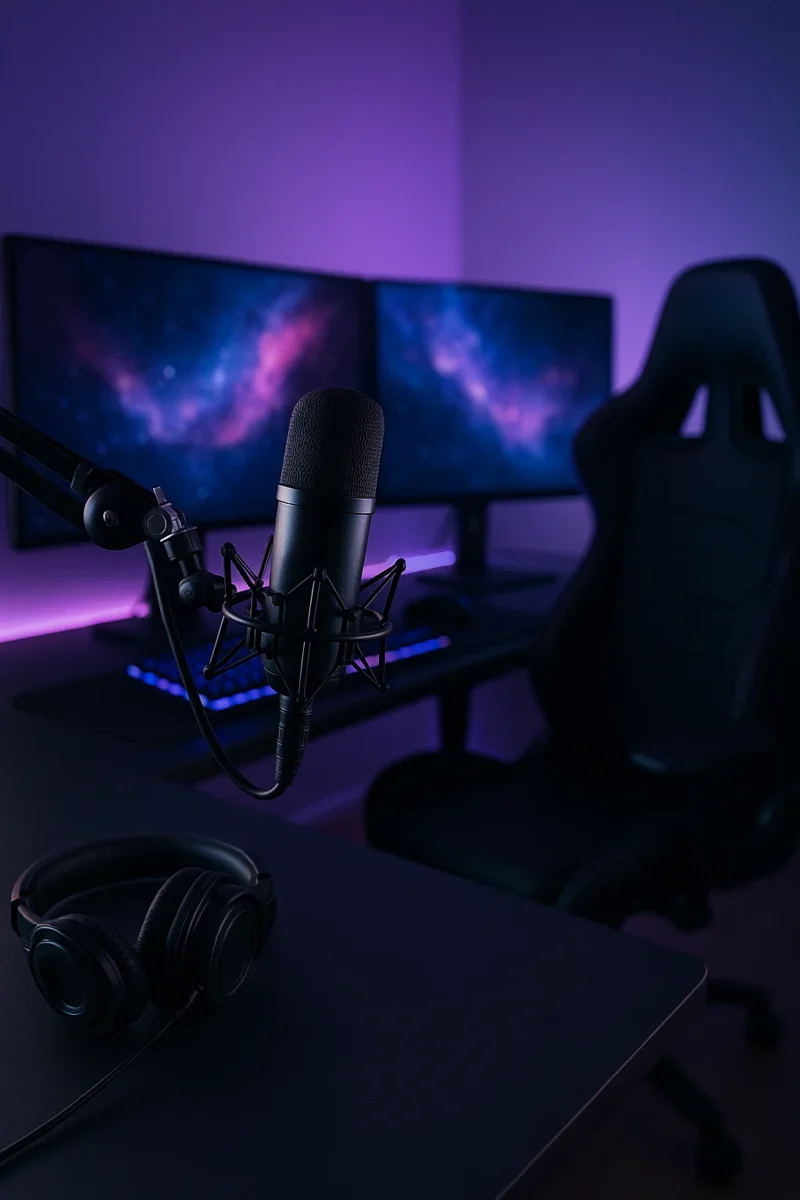
Best Streaming Microphones (2025–2026)
Looking for the best streaming microphone for Twitch, YouTube, or podcasts? These are the mics we actually recommend for 2025–2026 — from simple USB plug-and-play to pro XLR setups with excellent noise rejection.
Last updated: 2025-11-04
Our Picks: Best Streaming Microphone 2025
Shure SM7dB — Best streaming microphone Overall (XLR)
The SM7dB delivers broadcast-grade tone with a built-in preamp, so you get clean gain without a Cloudlifter. Its dynamic capsule rejects room noise and keyboard clicks, making it ideal for gaming setups. It still requires an audio interface, but the results are top tier — a perennial answer to “what’s the best streaming microphone for noisy rooms?”
Why we like it
- Built-in preamp = strong, clean level
- Excellent off-axis noise rejection
- Warm, polished “radio” voice
- Studio standard with robust build
Keep in mind
- Needs an XLR interface/mixer
RØDE PodMic USB — Best Budget (USB/XLR)
A rare value: PodMic USB sounds rich, rejects room noise well, and works either over USB-C or XLR. Great starter mic with a real upgrade path. It’s hefty and benefits from a sturdy boom arm, but performance per dollar is hard to beat for anyone chasing the best streaming microphone on a budget.
Why we like it
- USB today, XLR tomorrow
- Dynamic capsule cuts fan/keyboard noise
- Onboard DSP via RØDE software
Keep in mind
- No boom arm included
Shure MV7+ — Best USB All-Rounder (USB/XLR)
The MV7+ is a streamer favorite: plug-and-play USB-C with real-time DSP and a ring-light meter, plus XLR when you upgrade your chain. Not as airy as a condenser, but it tames noisy rooms better than most USB mics.
Why we like it
- Hybrid USB/XLR = flexible setup
- Auto-level, de-esser, pop filtering
- OBS-certified and well-supported
Keep in mind
- Works best 4–6 inches from your mouth
SteelSeries Alias Pro — Creator Studio Bundle (XLR + Mixer)
Alias Pro pairs a large-capsule XLR mic with a compact stream mixer for easy routing and dual-PC options. It’s pricier than a standalone USB mic, but you get interface-level control in a tidy package.
Why we like it
- Mic + mixer = simple, powerful workflow
- SteelSeries Sonar is streamer-friendly
- Clean desk setup, dual-PC ready
Keep in mind
- Higher cost than USB-only mics
SteelSeries Alias — USB Alternative
Want the Alias sound without the mixer? The Alias (USB) keeps the big-capsule clarity with LED metering and a streamlined setup. You lose the hardware routing of Pro, but you gain simplicity.
Why we like it
- Clean, modern USB sound
- LED level/mute visibility on camera
- Pairs well with Sonar for Streamers
Keep in mind
- Software-based routing only
HyperX QuadCast 2 S — RGB USB Pick
The updated QuadCast 2 S brings hi-res capture and customizable RGB in a plug-and-play package. Built-in shock mount and tap-to-mute make it painless for new streamers. As a condenser, it will hear more of your room than a dynamic.
Why we like it
- Great “out-of-box” sound
- Tap-to-mute + shock mount included
- Customizable RGB aesthetics
Keep in mind
- Condenser picks up more room noise
Logitech Blue Sona / Yeti Studio — Noise-Rejection XLR Pick
A broadcast-style dynamic with an internal ClearAmp preamp for +25 dB of clean gain. Perfect if you want strong noise rejection and already use an interface. It’s XLR-only, so there’s no USB fallback.
Why we like it
- Active preamp = strong output
- Excellent hiss/room rejection
- Creator-focused industrial design
Keep in mind
- Requires an XLR interface/mixer
Elgato Wave:3 — Elgato Ecosystem Pick
The Wave:3 sounds excellent for a compact USB condenser and integrates with Wave Link and Stream Deck for painless mixing. Manage distance and gain for best results in untreated rooms.
Why we like it
- Wave Link + Stream Deck synergy
- Anti-clip circuitry
- Small, desk-friendly footprint
Keep in mind
- Condenser favors quieter rooms
RØDE X XDM-100 — USB Dynamic Pick
The XDM-100 gives you broadcast-style dynamics over a single USB-C cable. UNIFY software adds virtual mixing and monitoring. It’s heavier than most USB mics and needs a solid arm, but the sound is focused and warm.
Why we like it
- Dynamic capsule rejects room noise
- UNIFY software for routing
- Rich, broadcast-ready tone
Keep in mind
- Bigger body; pair with a sturdy boom arm
Shure MV6 — Entry Shure USB
The MV6 is a simpler, more affordable Shure USB mic with voice isolation and tap-to-mute. Fewer physical controls than premium models, but the core sound is solid for new creators looking for the best streaming microphone at entry level.
Why we like it
- Plug-and-play with good voice focus
- Tap-to-mute + 3.5 mm monitoring
- Trusted Shure reliability
Keep in mind
- Limited hardware controls (use software)
How to Choose the Best Streaming Microphone
- Room noise? Prefer dynamic mics (SM7dB, MV7+, XDM-100, PodMic USB) if you have fans/clicky keyboards. Condensers (Wave:3, QuadCast 2 S) shine in quiet rooms.
- USB vs. XLR: USB is fastest to start; XLR scales better with interfaces/effects. Hybrids like MV7+ and PodMic USB cover both.
- Mic technique: Keep the capsule 4–6 inches away, slightly off-axis. Add a pop filter if you’re plosive-prone.
- Routing & software: Wave Link (Elgato), Sonar (SteelSeries), and UNIFY (RØDE) make multi-source mixes simple.
- Mounting matters: A decent boom arm stabilizes framing and reduces desk rumble—especially for heavy dynamics.
Helpful resource: OBS Project (free streaming mixer).
Once your mic and levels are dialed in, upgrading your desk speakers can make games, music, and alerts feel much better while you stream. This best desktop speakers for PC guide from ArmorSound walks through solid desktop speaker picks that pair nicely with the mics on this list.
FAQ
What’s the best streaming microphone for a noisy room?
Dynamic models like Shure SM7dB, Shure MV7+, and RØDE XDM-100 isolate your voice better than condensers when fans or keyboards are loud.
Do I need an audio interface?
Not for USB mics (MV7+, PodMic USB, Wave:3, QuadCast 2 S, XDM-100, MV6). XLR mics (SM7dB, Blue Sona/Yeti Studio, Alias Pro) require one—Alias Pro includes a stream mixer.
First accessory to buy?
A sturdy boom arm and basic acoustic treatment often improve your stream more than swapping mics. Then consider an interface/mixer if you add guests or music.
How We Choose
We cross-check the newest (2024–2025) expert round-ups and hands-on reviews, confirm current U.S. Amazon availability, and weigh streamer-specific needs like noise rejection, software routing, and reliability. We update quarterly or sooner if major models refresh.

